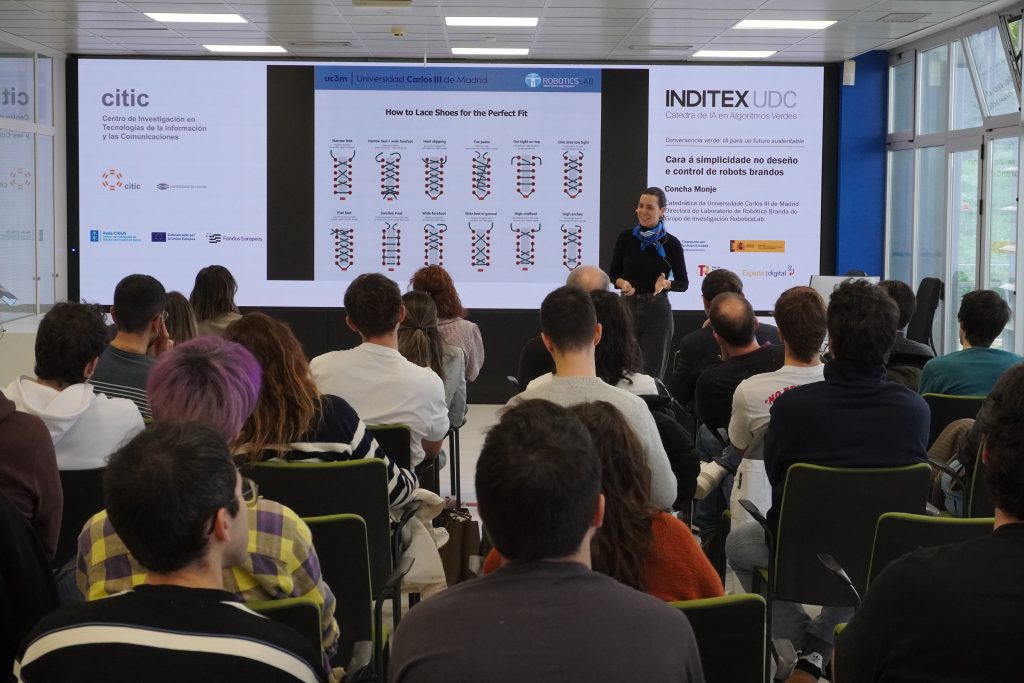
Concha Monje highlights simplicity as a driving force in Soft Robotics at the Inditex–UDC Chair in AI and Green Algorithms
The Inditex–UDC Chair in Artificial Intelligence in Green Algorithms, in collaboration with CITIC at the University of A Coruña, hosted on 14 November the plenary lecture “Towards Simplicity in the Design and Control of Soft Robots,” delivered by Concepción A. Monje Micharet, Professor at Universidad Carlos III de Madrid and one of Europe’s leading researchers in soft robotics.
The lecture focused on the concept of soft robotics and the challenges associated with designing and controlling such systems. During her talk, Monje advocated for the transformative role of simplicity as a guiding principle in the development of new robotic architectures. “Sometimes, the simplest solution is the most efficient,” she emphasized, noting that soft robots offer a more flexible, safer and more effective alternative to traditional rigid systems.
Monje explained that, while complex robotic designs often require artificial-intelligence-based approaches for modelling and control, soft robotics allows for simpler solutions. In this regard, she presented a versatile, low-complexity soft joint design that can be modelled and controlled using analytical techniques, thus reducing dependence on advanced machine-learning systems.
The researcher described how soft robots inspired by natural structures—such as octopus tentacles or elephant trunks—enable continuous movements with virtually infinite degrees of freedom. This feature facilitates simpler mechanical designs and safer interactions with humans and complex environments.
Innovation in design, modelling and control
Throughout the session, Monje also presented the latest advances from the Soft Robotics Laboratory of the RoboticsLab group (UC3M). She introduced the concept of the fractional PID controller—an evolution of the classic PID controller that enables more precise and robust control in soft robots. Due to the continuous and highly flexible behaviour of these systems, their modelling is especially challenging; fractional controllers therefore provide the required robustness without relying exclusively on data-driven or AI-based techniques.
The lecture included several case studies applied to robotic necks, flexible arms and soft grippers, including modular actuators and self-healing materials.
New applications and the role of Artificial Intelligence
Monje also highlighted the growing role of artificial intelligence in soft robotics, from modelling techniques based on Gaussian Process Regression to hybrid approaches that combine physical models with machine learning. She underscored the relevance of soft sensors based on piezoresistive materials and carbon nanotubes.
Among the projects presented, SIROCO stood out—a smart soft cervical orthosis currently undergoing patenting, designed for medical assistance and rehabilitation.
These advances fall within projects funded by the Spanish Ministry of Science, Innovation and Universities and the collaborative work of a multidisciplinary team at RoboticsLab-UC3M.
Concha Monje concluded her talk by encouraging the research community and the technology sector to “empower their teams to simplify complex problems,” reminding them that “creativity and efficiency often emerge from the simplest solutions.”





